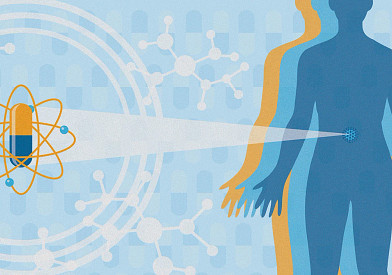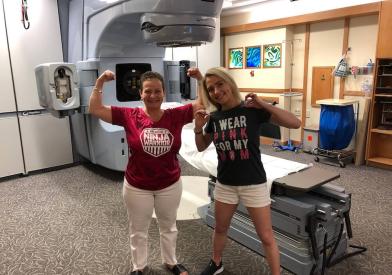What Is Thyroid Cancer?
Located in the front of the neck below the voice box (larynx) and above the collarbone, the thyroid gland plays a very important role in regulating the body's metabolism and function. Hormones released by the thyroid gland help to control heart rate, blood pressure, body temperature, and weight. Thyroid cancer occurs when cancer cells form in the tissues of the thyroid gland.
Incidence
- Thyroid cancer is the eighth most common cancer in the United States, according to the National Cancer Institute.
- According to the American Cancer Society, an estimated 64,300 new cases of thyroid cancer are expected to be diagnosed in 2016 in the United States, with 3 out of 4 cases occurring in women.
Risk Factors
Anything that increases your risk of getting a disease is called a risk factor. Having a risk factor does not mean that you will get cancer; not having risk factors does not mean that you will not get cancer. Speak with your doctor if you think you may be at risk for thyroid cancer.
Risk factors for thyroid cancer include:
- Female gender
- Radiation exposure, including prior radiation treatment to the head, neck, or chest
- History of goiter (enlarged thyroid)
- Family history of thyroid disease or thyroid cancer, including familial medullary thyroid cancer
- Certain genetic conditions, such as multiple endocrine neoplasia syndrome (type 2A and type 2B)
Signs and Symptoms
Thyroid cancer may or may not cause symptoms, or symptoms may only appear when the disease is more advanced. Signs and symptoms of thyroid cancer may include:
- Swelling or lump in the neck
- Trouble swallowing or breathing
- Hoarseness
Types of Thyroid Cancer
There are multiple types of thyroid cancer, including these:
- Papillary thyroid cancer, the most common thyroid cancer, grows slowly and forms into finger-like shapes. It is a differentiated thyroid cancer.
- Follicular thyroid cancer is the second most common type of thyroid cancer. It is slow growing and forms in the follicular cells of the thyroid, which uses iodine from the blood to produce thyroid hormones. Like papillary thyroid cancer, follicular thyroid cancer is also a differentiated thyroid cancer.
- Medullary thyroid cancer develops in the thyroid's c-cells, which make a hormone (calcitonin) that helps control the calcium level in the blood. It is a less differentiated form of thyroid cancer. Familial medullary thyroid cancer is caused by inherited conditions.
- Anaplastic thyroid cancer, a rare and very aggressive form of thyroid cancer, is an undifferentiated thyroid cancer. The malignant cells in this type of cancer look very different from normal thyroid cells.
- Parathyroid tumors form on the parathyroid glands, which are four pea-shaped organs located near the thyroid. Most parathyroid tumors are benign. There are fewer than 100 reported cases of parathyroid cancer in the United States each year, according to the National Cancer Institute.

dcdc.jpg)




